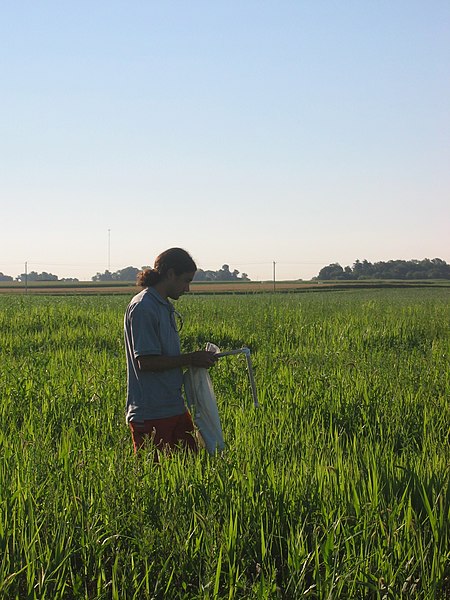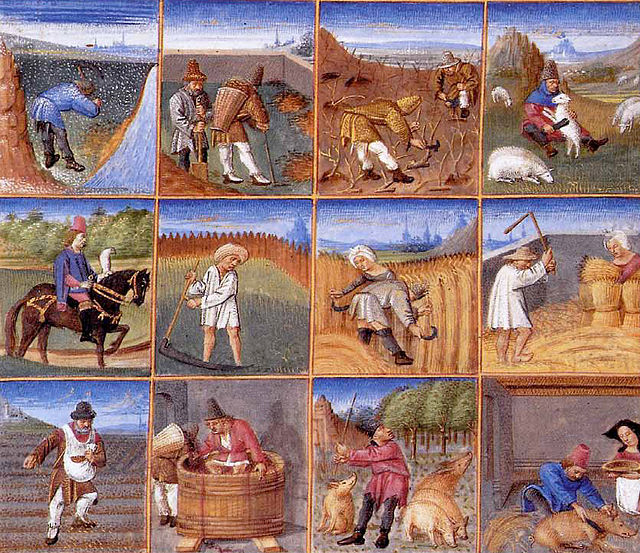Agronomy is the science and technology of producing and using plants by agriculture for food, fuel, fiber, chemicals, recreation, or land conservation. Agronomy has come to include research of plant genetics, plant physiology, meteorology, and soil science. It is the application of a combination of sciences such as biology, chemistry, economics, ecology, earth science, and genetics. Professionals of agronomy are termed agronomists.
An agronomist, field-sampling a trial plot of flax
Agriculture encompasses crop and livestock production, aquaculture, fisheries, and forestry for food and non-food products. Agriculture was the key development in the rise of sedentary human civilization, whereby farming of domesticated species created food surpluses that enabled people to live in cities. While humans started gathering grains at least 105,000 years ago, nascent farmers only began planting them around 11,500 years ago. Sheep, goats, pigs, and cattle were domesticated around 10,000 years ago. Plants were independently cultivated in at least 11 regions of the world. In the 20th century, industrial agriculture based on large-scale monocultures came to dominate agricultural output.
Winnowing grain in Ethiopia.
Centres of origin, as numbered by Nikolai Vavilov in the 1930s. Area 3 is no longer recognised as a centre of origin New Guinea (area P) was identified more recently.
Agricultural scenes of threshing, a grain store, harvesting with sickles, digging, tree-cutting and ploughing from ancient Egypt. Tomb of Nakht, 15th century BC
Agricultural calendar, c. 1470, from a manuscript of Pietro de Crescenzi





